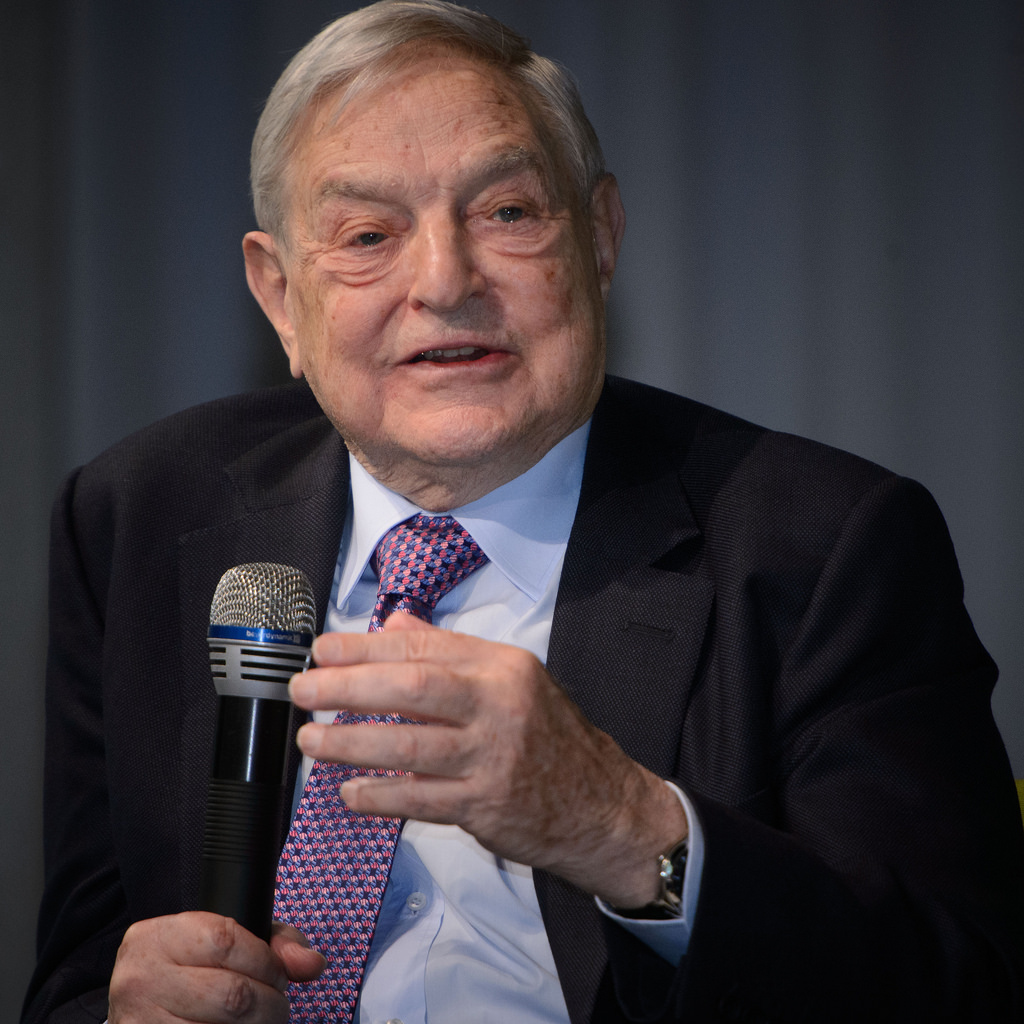George Soros, a financier and sponsor of color revolutions, attacked China at the recent Davos forum. Soros accused Chinese leader Xi Jinping of being an “opponent of open societies,” and criticized US President Donald Trump for “concessions to Beijing.”
The billionaire said that China is the richest, the most powerful and the most technologically advanced of all the “authoritarian regimes of the world”, making China a particular danger to the “open society”. The financier also drew attention to the fact that China is developing dangerous data technologies for controlling people, and that Chinese tech companies, including ZTE and Huawei, are already capturing the market for 5G technologies.
Soros added that the United States and China are locked in a cold war which threatens to go hot at any time.
Trump’s victory: something went wrong
The failure of Soros’s globalist vision manifested itself in the 2016 US presidential elections when Donald Trump won against all odds and expectations. From the beginning, Soros actively advocated the overthrow of the president, calling him “the ultimate narcissist”, ready to “destroy the world”.
Globalist forces in Europe are pulling out all the stops in order to collectively defame Trump and put a more suitable person in his place. However, the globalists have come up against an unpleasant surprise: when European leaders were presented with American sanctions packages against Beijing, instead of adhering to them, they started to form a pragmatic alliance with the Chinese (perhaps temporary, but effective). In this context, recent visits of the Premier of the State Council of the People’s Republic of China Li Keqiang to Berlin and Paris are important.
Why do the globalists hate China?
Soros and other financiers despise China, in the first instance, due to the sheer fact of its existence. The PRC’s governing bodies runs counter to the spirit and dogmas of the “open society” and its ideologists. China does not support the collective bullying of “rogue states” (North Korea, Venezuela, Russia and others), instead trying to keep neutrality on the international scene – yet, at the same time, China is building serious influence in regions around the world (Eurasia, Latin America, Africa, and of course, Europe).
China has a massive, united population who are working toward a single goal, an effective one-party system. In China, there is no illusion of “democratic elections” outside the Party, there is unified leadership and effective governance. This outlook is intolerable to the Western liberal outlook.
Soros is weak
Whereas the financier may once have been the architect of global regime change strategy, Soros has become an old, inefficient puppet suffering from hopelessness. The classical globalist schemes no longer work, and Davos’ statements look more like a complaint than a call to action. Moreover, Soros is no longer an active political force, serving mostly as a symbol of globalization and color revolutions. In his statements, he is speaking as an individual and no longer for the movement.
It is curious that his former partner and colleague Jim Rogers, who recently moved to Singapore, now says that it’s necessary to invest in the East, not in the West. In recent years, he has begun to criticize Soros.

Thus, in attacking modern China, Soros is actually signaling the failure of his own views. He is trying to disguise the collapse of the idea of the “open society”, which, with its imperative of atomic individualism, has been unable to compete with Chinese collectivism.
Danger remains
However, it is important to take into account that Soros is an ideologue of a global, atomic approach that still dominates in the West among some of the elite and those in power. He successfully popularized the philosophy of “dehumanization”, according to which only objects exist, and human is only part of this objective world.
This idea also underlies artificial intelligence, which challenges the very existence of humanity.
Thus, the existence of China, which remains a strong and solid subject, endlessly irritates the globalists. American conservatives, European nations protesting against the power of capital (such as the “Yellow vests” in France), new independent poles in the EU (the Visegrad group as an example) and alliances in the Middle East (Ankara-Tehran-Moscow in Syria) are all coming together to oppose globalist designs.
The main goal of globalists is to divide nations from one another and conquer them. They hope to accomplish their plans by destroying all collective identities capable of resistance.
Soros is in a very weak position, but as long as globalism and liberalism have their representatives among the global elite, the ideology of Soros represents a danger to China and other states. Soros claims that he “supports the Chinese people,” by which he means that the West will actively participate in China’s domestic political life through soft power. While Soros is old and weak, his networks are still alive and active.
If Soros succeeds in liberalizing China, he will receive a crucial “controlling stake” over the world. His ideas will start to self-reproduce and spread. The world must act now to prevent this from happening.

















Leave a Reply